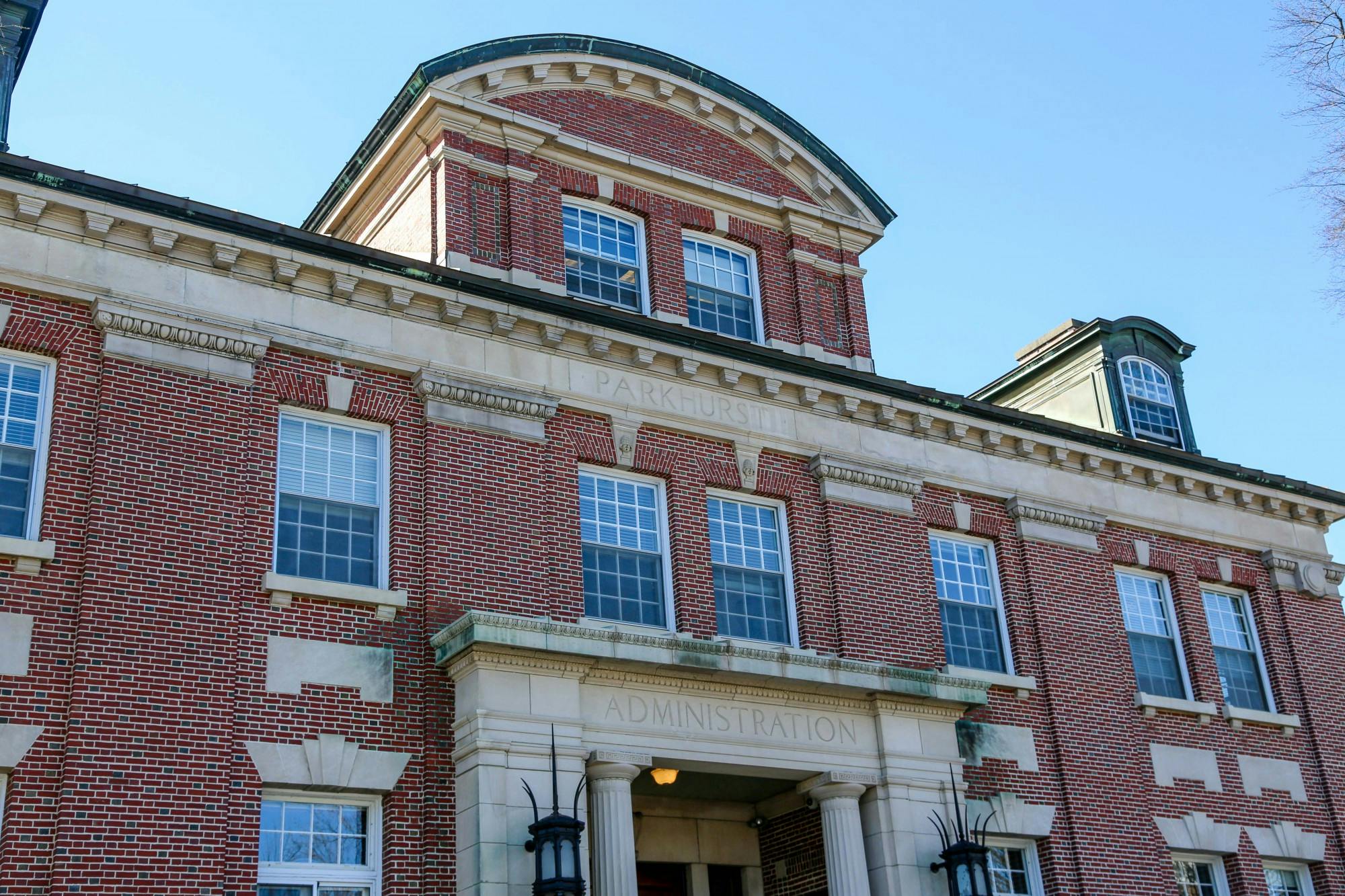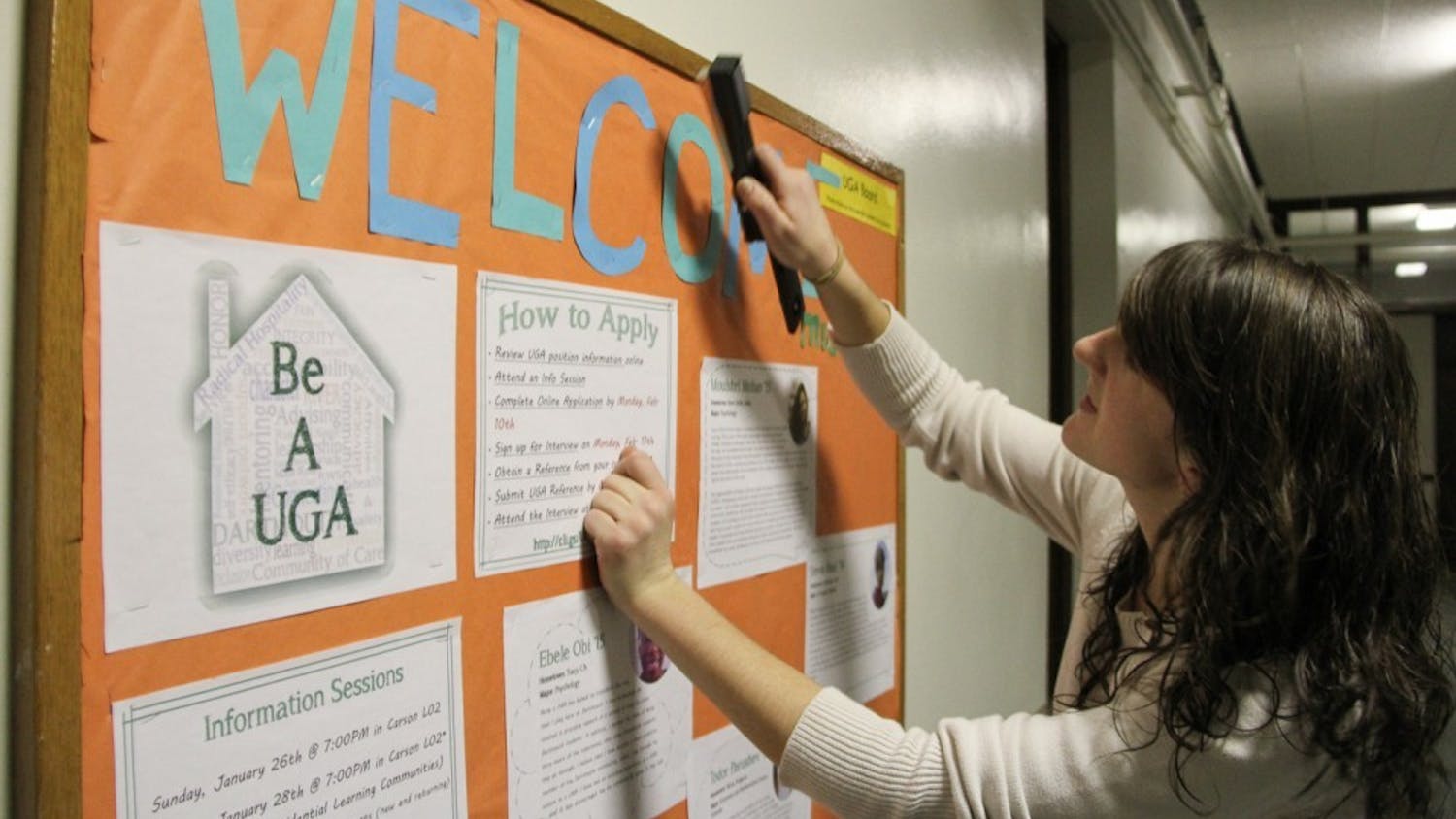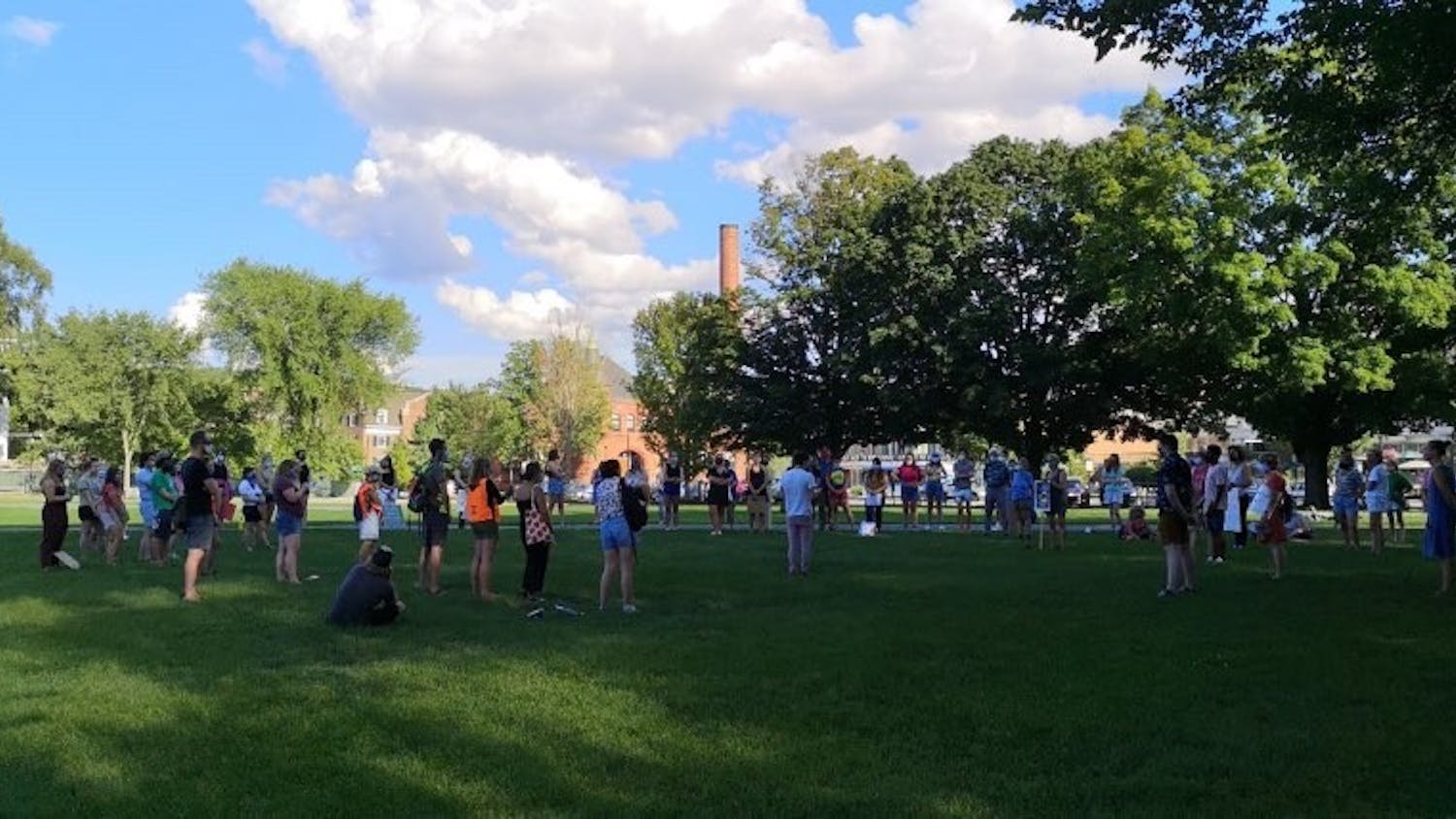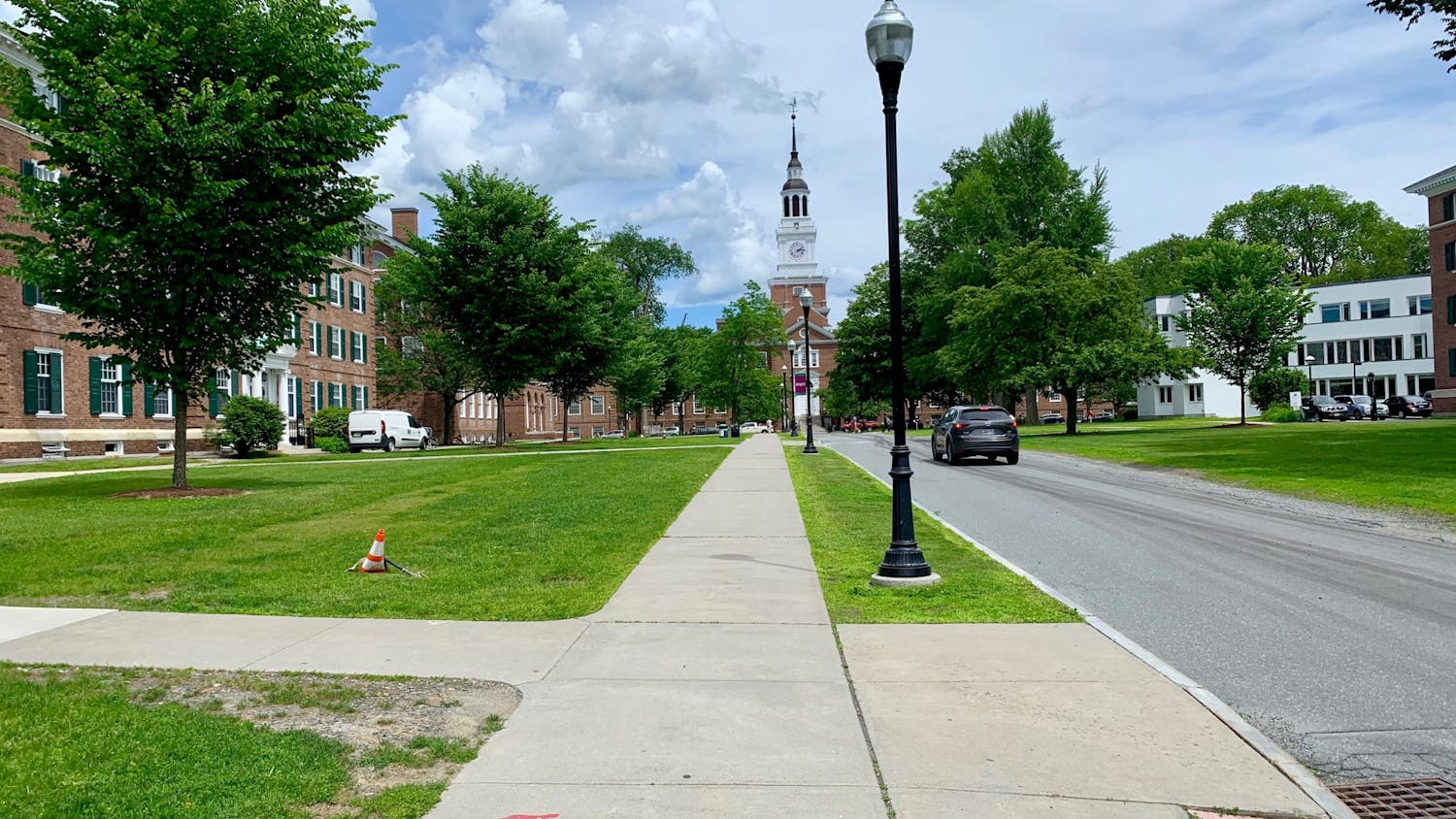Celeste D’Costa ’24 was having dinner with a few friends in her dorm room on Oct. 3 when several students knocked on her door and asked to join. Before long, 10 students were in the dorm room, including Jacob Fishler ’24.
Within 48 hours, D’Costa, Fishler and their friends were on their way home.
Rumored estimates of students whose campus privileges have been revoked for the rest of the academic year due to COVID-19 violations range from dozens to a few hundred. The College has repeatedly declined to report an official number, saying only that rumored numbers have been “wildly exaggerated.”
Before arriving on campus, students were made to sign a “community expectations” agreement outlining the College’s COVID-19 policies. The agreement stated that if students violated College regulations, they could risk being sent home.
Dean of the College Kathryn Lively said that the College does not usually release information about academic separation or suspension for medical withdrawal or behavioral reasons, and the current policy for information about students who have been asked to leave campus is consistent with this precedent.
She added that the policy is “a way to protect privacy and anonymity of individuals who may have lost their residential privilege.”
According to Lively, a “whole team of student affairs professionals” looks at each report of a COVID-19 policy violation, weighing whether the infraction was premeditated and if a given report is a legitimate risk to public health. She noted that the College does not keep a point system or a set list of offenses that warrant removal from campus. Rather, she emphasized that knowing and deciding what constitutes a serious infraction is “partly common sense.”
Lively noted that the College does keep track of all violations and considers previous history when deciding how to respond to a given infraction.
Student Assembly president Cait McGovern ’21 said that the College’s decision to not release the number of students sent home from campus “has further fueled speculation, rumors and panic among students.”
According to D'Costa, “no one has any idea what’s right or what’s wrong, or what they can be sent home for,” and “no one knows what they’re signing up for” when they come to campus.
D’Costa said that on the evening of Oct. 3, she felt bad about asking students to leave her room and recommended they move to a larger space. However, she said that the other students were not that concerned, and the group remained where it was. She added that because she had not heard anything from the College about the exact circumstances that led to other students being kicked off campus, she was unable to gauge how severe the violation was.
An anonymous LiveSafe report — likely due to loud music, Fishler said — led Safety and Security officers to the scene.
After Safety and Security officers informed Fishler that the students were breaking social distancing guidelines, he said he realized he might be going home and “had a mini panic attack,” severe enough that Safety and Security officers offered him a counselor and an ambulance.
Despite his anxiety, Fishler noted that Safety and Security seemed “very calm and friendly” throughout the incident.
“Most of us felt pretty confident that we were going to be on campus the rest of the term,” D'Costa said, adding that Safety and Security officers told her that it helped her case that the event was not planned and that not much alcohol was consumed.
The next day, D'Costa and Fishler both received calls from associate dean of student affairs Katherine Burke informing them that they had to leave campus by noon the following day. Fishler and D’Costa asked if they could go through an appeals process, but they were informed that no such process exists.
Fishler, who lives a five-hour drive from campus, said that his mother had to take the day off from work to pick him up.
“It just shows a general unreasonableness and unwillingness, either intentionally or not intentionally, to just care about the cases on an individual level of what people may or may not be going through,” he said.
D’Costa, an international student from Canada, said she was told to book a room in a hotel in town after her parents called to express concerns. The College did not offer financial assistance for a hotel or plane ticket. However, Fishler said that the College was refunding his room and board “at a proportional rate” corresponding to the number of days he had stayed on campus.
D'Costa said that being sent home resulted in the termination of her I-20 visa, rendering her temporarily ineligible to work in the U.S. The Trump administration recently enacted a regulation stating that international first-year students attending college in the U.S. must take in-person classes to be eligible for a visa.
Fishler said that although he understands the importance of the COVID-19 regulations, the way they are enforced on campus felt “draconian.” He also expressed concern that the strict regulations would encourage those determined to break the rules to do so in places outside of the Dartmouth bubble.
“If people wanted to have a huge party, they could just go a town over to some random spot in the woods and do that,” he said. “But in doing so, they’d be in an area that isn’t the Dartmouth campus, away from where people are being tested and where the administration knows that it’s safe.”
D'Costa said that “people felt less safe being outside, hanging out with friends, than they did while hanging out in their dorms.” She added that in general, freshmen are feeling “lonely and isolated.”
“You want to meet new people,” D’Costa said.
When asked about student anxieties concerning community members disappearing from campus, Lively responded, “If you're not breaking the community expectations agreements, then you should not be worried at all about the likelihood of you disappearing.”
Lively said that the College has chosen not to report numbers in part because “people come and go from campus for a variety of reasons, and if [the College] were to say ‘x number of students were removed this week,’ people would scour the community to figure out who they are.”
She also noted that the College is hesitant to specify which infractions will lead to students being sent home because what constitutes a “threat to public health” is likely to change depending on the severity of the pandemic on campus.
However, McGovern and SA vice president Jonathan Briffault ’21 stated that they have been talking to the College, and they “hope that policies are going to be more clearly communicated in the future.”
Briffault said it is inevitable that students will violate some of the College’s policies. D'Costa echoed this sentiment, adding that increased transparency about what type of events resulted in students being sent home would help students be more informed about the risk of violating College regulations.
According to Briffault, College administrators themselves “are having trouble figuring out where they should be” in terms of defining rules and regulations.
McGovern stressed that clarifying College policies is especially important as the College looks toward winter term and students have less access to outdoor spaces.
Fishler said that, though he had applied early decision and looked forward to coming to campus for “the whole last year,” he has since considered the possibility of transferring to another school due to the College’s response to his situation.
“I don’t regret coming to Dartmouth, but I am extremely disappointed that the reality of the situation has not lived up to my expectations for Dartmouth,” Fishler said.
Although Lively acknowledged that “this is not the first year experience that students signed up for,” she emphasized that the College hopes to “protect everyone's ability to return to the community in ways that are not leaving them open to stigmas.”
“The bottom line is, this really shouldn't be that newsworthy,” Lively said.
Though Fishler said that his experience on campus was not what he had expected, he still wishes that he could stay on campus rather than finishing the school year at home.
“I just feel like I’m staring at an endless wait of time in which I’m just going to be alone and unhappy,” Fishler said.
This is a developing story. Any tips or additional information can be sent to editor@thedartmouth.com.

Lauren ('23) is news executive editor for The Dartmouth. She is from Bethesda, Maryland, and plans to major in government and minor in public policy.




